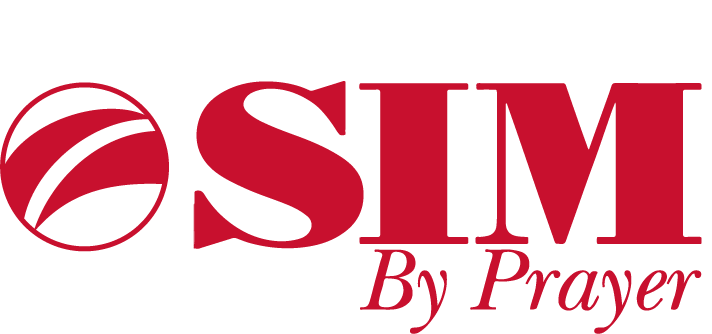Duplicate for Welcome to Lebanon
By Zoë Cromwell | Middle East

Photo by Rashid Khreiss via Unsplash
When Miriam* first came in September to teach at a big Christian school near the capital, she learned many things fast. As she drove to the school on arrival, it was impossible to miss the black circles on the streets where tyres had been burned in protests. Or the explosion site from 18 months ago at the port with ships lying tossed about in wreckage.
As one blow after another assails Lebanon, the phrase 'welcome to Lebanon' often carries the meaning: “There’s been another problem. This is life here, what did you expect?”
Lebanon Evangelical School Loueizeh has about 1,700 students, the vast majority of whom are not Christian. But in daily chapel assemblies students learn about Jesus, sing a hymn, and pray. In the context of Lebanon it is a strong declarative statement to say, “…it will be impossible for anyone to continue with us long without knowing what we believe to be the truth and our reasons for that belief.” There’s one song Miriam mentions— ‘Saviour, he can move the mountains; my God is mighty to save’— “and all the kids just love to shout the word Saviour. It’s one of the ironic things I’ve found about the school,” she says, “I think God must absolutely love it."
“When I got here and still when I meet new people they say, ‘Why would you come to Lebanon? Everyone is trying to leave!’ How do you convey to someone this conviction of where you’re supposed to be and not have it sound cheesy? Usually I say that I was looking for an opportunity to teach and knew teachers were needed so badly here.”
Almost all the teachers are Lebanese and 25 have left in recent months while numbers of students are growing — for families with access to dollars from overseas, 450 USD per year translates to affordable fees when exchanged for the millions of pounds it now represents in local currency.
Those who can, emigrate. With the inflation rate surging past those of perennial sick economies Venezuela and Zimbabwe, food prices have increased more than 500 per cent since the political uprising began in 2019.¹
For almost all the 2020 to 2021 school year the school wasn’t open physically — teaching was online — because of protests and then Covid, which at first was rather overshadowed by problems such as not being able to buy groceries and get to work. But now that Covid cases are spiking, the government has introduced vaccine mandates; education workers must be vaccinated (or tested twice a week).
“School even opening this year was very much in doubt at times. It’s a blessing that God has allowed us to be open,” Miriam says. Power cuts make study from home a big problem. At the school, where Miriam lives on site, she is in a kind of bubble — generators are kept going 24/7, to keep the school’s computers running, but many family homes can no longer afford the fuel for a generator.
She finds the people friendly, open, and honest about what they are going through. With all the issues Lebanon faces today the big question is always lurking: ‘Where is God?’ And in Christian circles, a lot of meditating on the Psalms. Miriam sees that in a small, undramatic way, cross-cultural workers like her coming to Lebanon are a sign of God showing up.
At the school, despite the presentation of Jesus Christ to students in daily chapels and a weekly compulsory Bible lesson, she can’t share her faith in the classroom — although in appropriate one-to-one conversations it is okay to explain what she believes. There is clearly a Christ-like ethos that permeates the school; just one example — kids with disabilities such as autism are welcomed and cared for.
Christian schools in Lebanon walk a hemmed-in path. They started because the country has had a significant Christian population, but things have changed over recent decades; those leaving tend more often to be Christians — who are usually middle class, with the means to leave. At many of Lebanon’s Christian-foundation schools the majority of students are non-Christian, and some now provide only minimal Christian teaching. Catholic institutions provide education for about half of private school students, and a third of all Lebanese, but most of these schools face uncertain futures.
Evangelicals, less than 1 per cent of the population, run 35 schools, but only a minority of the Evangelical-foundation schools (including the one Miriam teaches at) have maintained a clear gospel focus. In a recent article, the head of the Association of Evangelical Schools in Lebanon, Nabil Costa, said, “We share the good news about Jesus, and how he loves everyone, but they will only hear this if we provide a first-class academic education.” The evangelical schools consistently score in the top 5 per cent in national exams.
To continue this influence they need teachers like Miriam. And, maybe, you. Pray for the Lord to call those who have his vision for this country.
Are you a teacher with a call on your life to serve? Could you be one of the ways God “shows up” for Lebanese children and their parents who desperately need to hear his good news? Contact us today.
*Names changed.
1. Jayson Casper in Christianity Today.
First published on SIM NZ's website.
Related stories

New Uruguay mission school has vision for world missions
SIM has a commitment to see Uruguay reached for Christ. And through key partnerships with like-minded organisations, a new missionary training school called Todos Oiran (All Will Hear) is opening its doors in Montevideo, Uruguay.

